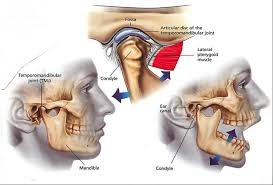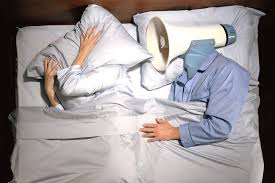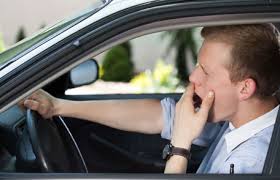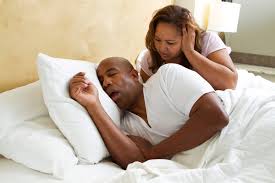Temporomandibular joint disorder (TMJ) is a condition that occurs when your jaw becomes misaligned. As a result, your bite is not in balance and your muscles are strained in their normal resting position. This can lead to a number of problems and painful symptoms. You may have trouble eating, opening your mouth wide, sleeping, and enjoying your daily activities.
The most common TMJ symptoms are:
- Facial, neck, and jaw pain

- Limited jaw mobility
- Popping or clicking in your jaw joint
- Difficulty chewing
- Headaches
- Tinnitus
- Uneven or uncomfortable bite
Dr. Sheridan can use the principles of neuromuscular dentistry to help alleviate your symptoms by moving your jawbone into its ideal resting position. The first stage of your TMJ treatment will work to alleviate your pain. This is often accomplished using TENS therapy which consists of low level electrical stimulation that relaxes your jaw, making it easier to find its ideal resting position.
Once your pain has been remedied, Dr. Sheridan will work to find a more permanent solution to your misaligned bite. This may consist of:
- Customized orthotic mouth guards
- Orthodontics
- Dental restorations
- Surgery
TMJ Symptoms
There can be several symptoms indicating TMJ, many of which can be similar to those caused by other oral and systemic issues. These similarities can cause some people to overlook TMJ as a possible cause, resulting in long-term discomfort and an increased difficulty in future treatment.
Neuromuscular dentist Dr. Sheridan can detect TMJ based both on your symptoms and his evaluations, helping restore alignment to your jaw and relieve TMJ symptoms for good.
Common Symptoms of TMJ
Some symptoms of TMJ will point directly to a misaligned jaw joint. These include
- Clicking or popping in the jaw
- Pain, soreness, or tenderness around the jaw
- Limited jaw mobility or complete lockjaw
- Swelling around the jaw
Other symptoms of TMJ can be less obvious, but can include:
- Headaches
- Earache without infection
- Neck, shoulder, or back pain
- Facial asymmetry
- Facial Pain
- Tooth and gum sensitivity
- Sleep Disorders
If you are suffering from one or more of these symptoms, Dr. Sheridan can determine if TMJ is the culprit and customize a TMJ treatment option to address your specific concerns.
Headaches
Many folks complain of headaches. It’s not that they are a bunch of whiners, in fact I usually bring up the subject. The common thread with most of our patients is that they didn’t realize that there may be a connection between their headaches and their bite. Most folks by now have heard of TMJ and jaw pain being related to a “bad” bite, but few have heard of the association of headaches and what we call malocclusion or “bad bite.”
The jaw joint is complicated. It hinges, like your knee does, but it also comes away from it’s socket to slide forward as when you open really wide. The TMJ can also translate left and right, as it does when you move your chin left and right.
There are several muscle groups that all work together to make this happen. Surprisingly, these muscles are not just located in the jaws, they are on the side of your head, the back of your head, neck, and even behind your eyes.
If your bite is less than ideal, this complicated TMJ joint, and all the surrounding muscles can actually compensate for the imperfection. Unfortunately, the muscles become overworked in the process and create pain.
Imagine what would happen to your bicep muscle if you held even a light weight in your hand for 24, or 48 hours without a rest. Your head and neck muscles may have been working to compensate for your bite for years. Imagine the fatigue.
Do the muscles on the side of your head hurts like crazy when you have a headache? The one right on your temple? Well it is part of the group that helps position the lower jaw.
How about those headaches that feel like they are right behind your eye. There is a muscle behind your eye that is also part of the group of muscles that help compensate for a bad bite. If that becomes fatigued it can hurt and cause a headache. Even the muscles at the back of the head and neck are involved in helping to posture the jaw to compensate for the bad bite.
So how do we figure out if the bite is contributing to your headaches? We test the muscles. There is something called Electromyography which allows us to see the muscles in live action to determine if there is unusual activity when you bite. There is also sonography, which is listening to the joint for uncharacteristic sounds, and also jaw tracings to illustrate the movements of the jaw that are hard to see with just a visual exam. All of these tests get run through a computer and analyzed.
If a bad bite (malocclusion) is contributing or causing the headaches we can make an appliance, or adjust the bite, or replace worn tooth structure. Whatever it takes to allow the muscles to rest. Rested muscles are happy muscles.
TMJ Treatments
Treatment of TMJ will need to be based on your unique needs and the degree of misalignment affecting your jaw. During your TMJ evaluation with Grove City neuromuscular dentist Dr. Sheridan, the treatment option most suited to meet your needs will be determined.
Treating TMJ
Commonly, TMJ treatment is accomplished through little more than muscle relaxation. Using a state-of-the-art TENS unit, Dr. Sheridan can relax the muscles around your jaw to reduce tension, eliminate pain, and provide long-term relief from TMJ.
Not all cases of TMJ can be permanently treated with a TENS unit. Many patients benefit from the use of an oral device such as a splint or mouthguard in addition to TENS massage. With an oral device, your jaw will be gently held in its proper alignment while you sleep. This can help retrain your muscles to hold your jaw in its ideal alignment while also preventing teeth grinding or clenching, a common cause of TMJ.
Other patients may benefit more from full mouth restoration. If your TMJ is the result of a misaligned bite or other dental issues, solutions such as dental implants and dental crowns may be better suited to meet your needs.
Your TMJ treatment will be based on your specific needs. Dr. Sheridan will work with you on an individual basis to provide you with the most effective TMJ treatment available.
TMJ Pain Remedies You Can do for Yourself
- Eat soft foods.
- Apply ice packs.
- Avoid extreme jaw movements.
- Practice reducing stress and relaxing techniques.
- Practicing gentle jaw stretching.
- Applying warm moist heat
Pain medication
For some people with TMJ disorders, short-term use anti-inflammatories or pain medication such as ibuprofen, may provide temporary relief.
Possible Treatments
Orthotics, or bite guard.
Your dentist may recommend a stabilization orthotic (oral appliance) that helps place the jaw in a position that creates harmony between the jaw muscles, jaw joints and the teeth.
Your dentist may also recommend exercises if appropriate for your particular condition.
The conservative treatments described are useful for temporary relief of pain – they are not cures for TMJ disorders. If symptoms continue over time, tell your dentist
If you have problems with TMJ, be sure to contact us so we can discuss a course of treatment for you.
Neuromuscular dentistry
Neuromuscular dentistry is, simply put, the field of dental medicine that deals with the structures of the head and neck including soft tissues (or muscles), bone, and nerves. It not only involves upper and lower jaw disorders such as temporomandibular joint disorder (TMJ), but also, the anatomy and physiology of the patient as a whole.
The Role of Neuromuscular Dentists
The neuromuscular dentist treats a variety of symptoms and disorders involving the jaws and teeth. He understands how the relationship of the muscles, nervous system, joints, the bite, and the biomechanics all relate to the proper functioning of the jaw, and their role in the disease process. Some of the diagnoses that a neuromuscular dentist treats include TMJ disorders, headaches, head and neck pain, jaw disorders such as popping, clicking, and locking, sinus pain, and sleep apnea.
The Benefits of Seeing a Neuromuscular Dentist
When a patient seeks healthcare related to a specific problem, they usually go to a specialist to treat the problem (e.g. a chiropractor is seen for back pain). The field of dentistry is no exception. For a problem with the jaw, there are many benefits of seeing a neuromuscular dentist.
- They are trained in evaluating and treating the anatomy and physiology of the head and neck as a whole.
- They have the technology necessary to diagnose, isolate and treat the problems
- They decrease or eliminate pain completely.
- They help their patients achieve overall enhanced health.
- Due to corrections they make, dental restorations last longer.
The field of neuromuscular dentistry is a relatively new one with many distinct advantages for treating problems in the TMJ, or in treating headaches. Their in-depth knowledge of the head and neck allows them to effectively treat and give their patients relief from pain and discomfort.
The interventions range from wearing an orthotic to position the lower jaw, to orthodontics to correct the disharmony of the bite, to restoring the damage caused from a bad bite with crowns or onlays. Many of the treatments are easily performed and provide a lifetime of relief to the patient.








